Madeline Earp
Madeline Earp is a consultant technology editor for CPJ. She has edited digital security and rights research for projects including five editions of Freedom House’s Freedom on the Net report, and is a former CPJ Asia researcher.
Fiji’s emergency ends, but media oppression continues
Fiji’s military leadership on Saturday lifted emergency regulations it had been using to stymie the country’s press since 2009, according to local government websites. Good news? Maybe. Yet the regime still restricts the media, and anyone else who dares to question the legitimacy of the 2006 coup that brought its leaders to power–suggesting they are…
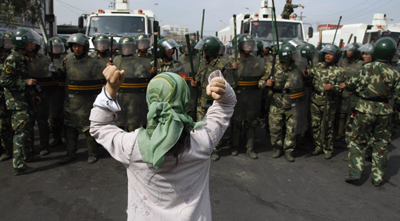
China’s jailed Uighurs: Out of sight, not out of mind
For the first time in more than a decade, China is not the world’s worst jailer of the press in CPJ’s annual census of imprisoned journalists. Among the 27 jailed in China, one group has seen a massive jump in imprisonments. In another first since CPJ began taking its census, more than half of those…
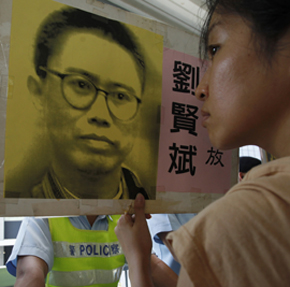
In lawsuit, Chinese writers allege Cisco aids government
Three Chinese writers who have spent time in prison for articles published online are suing California-based Cisco Systems Inc., according to international news reports. The suit accuses the company of providing information and technology to Chinese authorities that facilitated the writers’ detentions–allegations that Cisco flatly denies. Chinese security officials have already interrogated one of the…
The highs and lows of investigative reporting in China
Veteran investigative journalist Wang Keqin has always been positive about his chosen career, characterizing media restrictions in China as a cycle with ups and downs. In an interview for CPJ’s October 2010 special report “In China, a debate on press rights,” he told CPJ that “there was a big fall-off in reporting freedom in 2008…
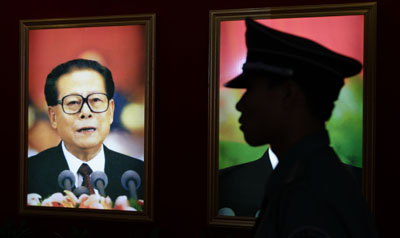
Chinese censorship fans rumors on Jiang Zemin
Sina’s Twitter-like microblog platform Weibo blocked searches for “death,” “river” and “301 Hospital” on Wednesday, according to The Wall Street Journal website. The company was responding to what Reuters reported was the service’s most-discussed topic yesterday–the rumored demise of former President Jiang Zemin, whose surname, Jiang, means “river,” and who may or may not have…
Public health still risky topic for Chinese journalists
Public health reporting is improving in China, but not fast enough. A new Human Rights Watch report on child lead poisoning in Chinese cities documents harassment of local journalists trying to cover the problem. “Journalists who reported on the lead poisoning in three of the four locations told Human Rights Watch that police had followed…
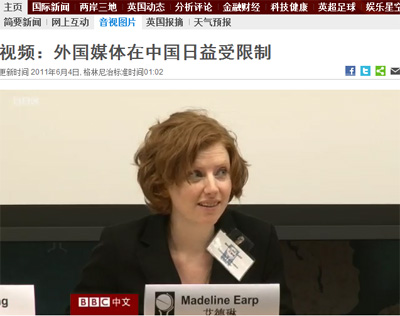
Chinese media freedom in a ‘sensitive’ period
I was in London on Friday, speaking at a seminar joint-hosted by the BBC Chinese service and the British think tank Chatham House called “Media Freedom in China and the Role of International Broadcasters.” There was a lot of impassioned discussion about the range of challenges facing international broadcasters, from slashed budgets to the recent…
U.S-China disagreement, not dialogue, on human rights
The U.S.-China Strategic and Economic Dialogue, which concluded in Washington today, may not have produced much in the way of specific commitments on human rights issues. But media appearances surrounding the talks have provided a forum for top leaders to re-state their views in public.
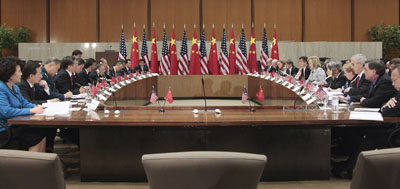
U.S.-China dialogue must keep focus on human rights
China’s powerful State Councilor Dai Bingguo told U.S. officials today that his country was “making progress” on human rights issues, according to Agence France-Presse. The remarks, made at the start of the two-day Strategic and Economic Dialogue, do not bode well for U.S. efforts to keep human rights on the table after last month’s exchange on human…
